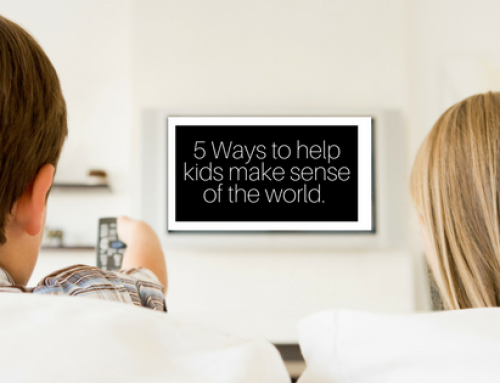
The 10 Life Skills Which All Kids Need Before They Leave Home!
What happened? Weren’t you just at the park with this adorable little child? Where did the time go? Many of us have kids that are about to graduate or will graduate in the next year or two. We try as parents to teach our kids as many skills as we can and sometimes assume that they know more than they actually do when it comes to everyday life skills.
Having experienced this phenomenon, I would like to share 10 life skills that every young person should have before leaving home! The best way to teach these skills is to model them through your behavior. Have you noticed that sometimes kids don’t want to accept valuable information from parents? That’s when enlisting the assistance of a relative, a family friend, or a life coach can be helpful. How many times have you heard your child say that another adult told them something which you have already told them thousands of times and act like it is some incredible revelation?
OK, parents! I have done the research for you and I have lived this! Use this list as a departure check off!
Ten Essential Life Skills:
- Conflict Resolution
- Indispensable skill for getting along with roommates, professors, friends, and employers.
- Self-Advocacy
- How to ask for help from professors and teaching assistants and how to get assistance if you have any special needs.
- Time & Stress Management
- How you manage time will not only affect productivity but affect the stress which your child creates for himself/herself.
- Work/Play Balance
- The ability to prioritize what you have to do with what you want to do.
- The ability to create a budget for necessities as opposed to recreation.
- Medical care
- Many kids become ill when they are on their own due to lack of knowledge about basic health.
- Sexual Consent
- This touchy subject needs to be an ongoing discussion addressing respect in relationships. Make sure that your child knows the difference between consensual and non- consensual sex or it could result in an ugly legal situation. Also, it needs to be explained that an impaired individual cannot give consent.
- Dangerous situations
- Emphasis being aware of one’s surroundings, always having an exit plan with dependable transportation, and what to do if violence erupts.
- Alcohol/Drug Abuse
- Lack of knowledge in this area can lead to dire results!
- Etiquette in the Technological Age
- Email is the standard communication between professors and students. Everyone needs to reread emails before sending to check for spelling, grammar, and punctuation which can convey the wrong message if you are not careful.
- Communication with Family
- Before your child leaves, discuss and agree upon how often and how you plan to communicate. Having this expectation spelled out will avoid hard feelings. You need to let your child feel independent but let them know that he/she has a safety net. Depending on your child’s maturity, both of you can decide how often is enough and if you will communicate by phone, Skype, text, or visit in person if they are living nearby. Some kids need more support initially and then less support later on and some kids like to prove their independence with less communication from home in the beginning. Agree on how your child will communicate their academic progress to you. I know that legally after 18, students don’t have to share grades with their parents but it’s a good idea to have open communication in this area for reasons of academic support, rather than punitive reasons. Expectations for grades should be discussed as part of general expectations. Let them know that they have a stake in this. Their grades are their responsibility. However, parents should let their kids know that they are there for moral support.
Living on your own is a big step even if you are living on a college campus. There are so many life skills to teach your kids before they leave home in order to keep them safe and happy. Living away from home can really help a teen mature in ways he/she would never do if living at home. This next big step can be a positive and transformational change in your child’s life if your child is well-prepared! What will you do to prepare your child?
To find out the questions parents should ask themselves to find out, if their teens are competent in these essential life skills, download this parent cheat sheet: Parent Cheat Sheet for 10 Essential Life Skills


